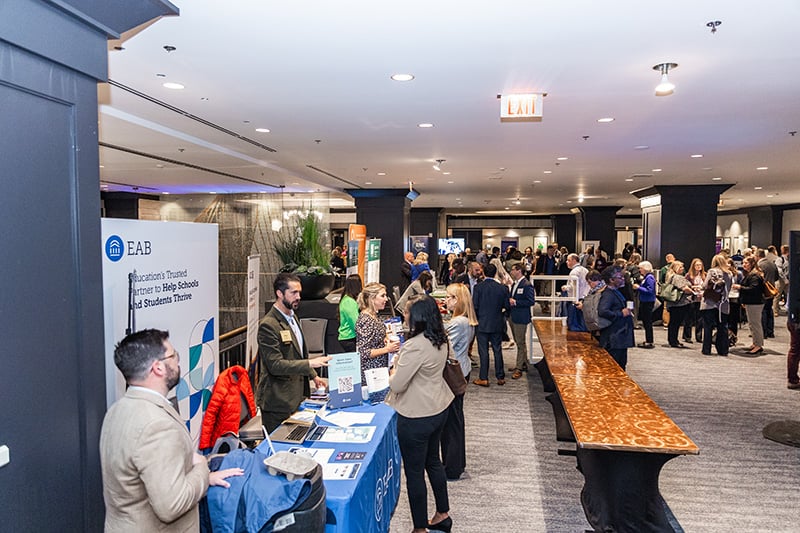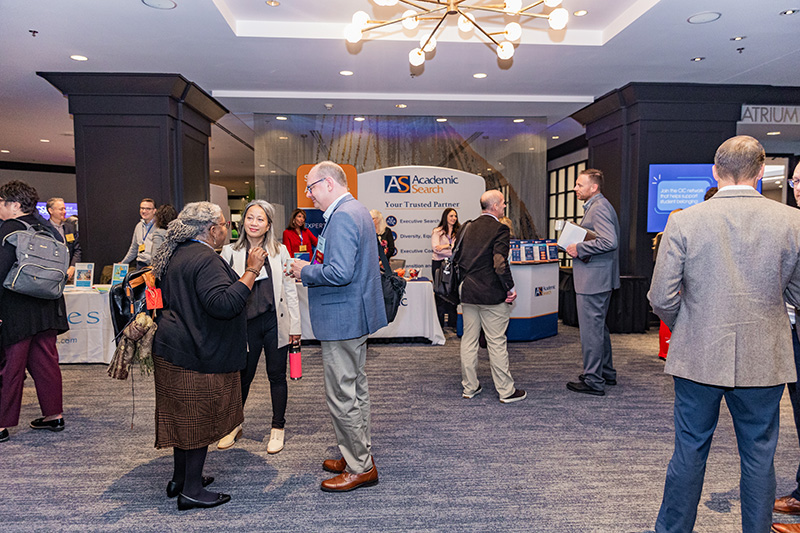The theme of the Institute for Chief Academic Officers was Academic Leadership Now & Next, and chief academic officers and their teams collaborated on ways to build alliances, create innovative academic pathways, and unlock the potential of education for more students. Interactive seminars and concurrent sessions focused on artificial intelligence, bridging academic mission and the marketplace, prison education, and executive coaching to sustain energy and passion, in addition to other relevant themes and topics.
Plenary Sessions
Plenary sessions at the Institute for Chief Academic Officers focused on partnerships and innovation needed to achieve common goals and lead the charge to address challenges in the sector and build a stronger future.
The opening plenary session, “Partnering for Good: Prison Education and the Potential for Transformation,” featured Shirley Hoogstra, president emerita, Council for Christian Colleges & Universities. Hoogstra discussed how prison education programs can apply the best aspects of a liberal arts education in a nonconventional setting, quoting Albert Einstein: “A liberal arts education is not about ‘the learning of many facts but the training of the mind to think something that cannot be learned from textbooks.’”
According to Hoogstra, it costs less to educate than incarcerate, especially thanks in part to the action from the Department of Education to restore access to a Pell Grant for any person who is incarcerated and wishes to pursue postsecondary education. She referenced a documentary called Behind Our Walls, which follows inmates in Michigan pursuing college education through the Calvin Prison Initiative, showcasing their resilience and community-building despite differing backgrounds, conflicts, and lengthy sentences. As of May 2023, the National Directory of Higher Education in Prison Programs lists a total of 465 academic institutions offering educational opportunities at 589 of 1,664 US correctional facilities. Despite some of society’s perceptions and expectations, prison education provides a clear proof point for the potential for transformation for both students and institutions.
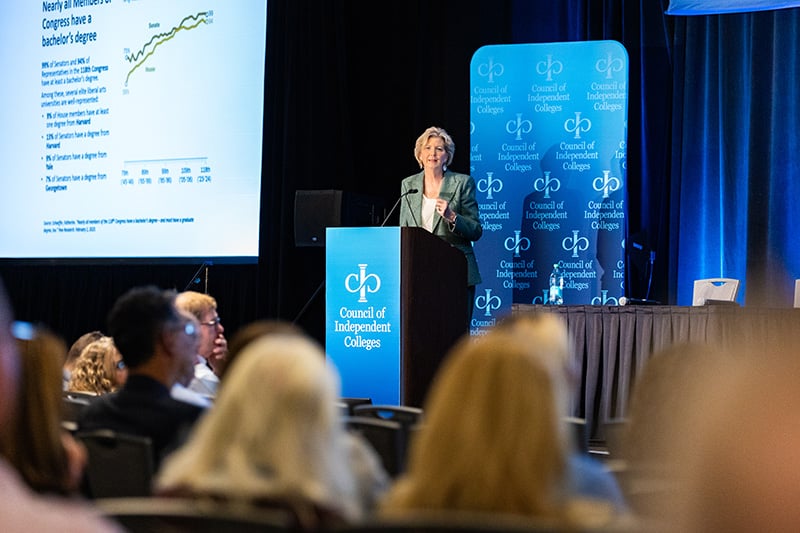
The second plenary session was called “AI and Academia: Leading the Charge in an Era of Educational (R)Evolution.” Cynthia Alby, professor of teacher education and faculty director of GC Journeys at Georgia College and State University, began with her feelings about the “promise and peril” the first time she used ChatGPT. She then outlined the steps that institutions can take to prepare for the inevitable use of AI and specialized GPTs. According to Alby, most institutions have appointed a committee, created and distributed surveys to the community, and even crafted a policy about AI use. However, stakeholders, especially faculty and staff, need more: Those that are intrigued by AI need to know where the limits are; those that feel fear need to hear leadership championing it, and everyone needs more time and training. She recommends creating a student guide, provost statement, and a signable statement of principles from the governing board as a starting point.
Alby then outlined ways that colleges can introduce students to AI (start with the downsides, have students use it and critique output, and allow students to self-persuade about the reasons they would want to use AI responsibly). According to Alby, encouraging the use of AI seems to lead to better results than banning it, and AI is becoming more and more common in the job market, from media jobs to tech jobs to finance jobs to legal industry jobs. And job recruiters are looking for humanities majors with facility in AI. There are many ways that AI can be helpful with teaching, accommodations, research, and presentations. But AI can negatively affect the environment and has made it easier to create and spread disinformation. It looks like AI is here to stay, and Alby advises that everyone choose a platform, practice easy uses and critiques the output, and above all, ensure the learning matters and has value.
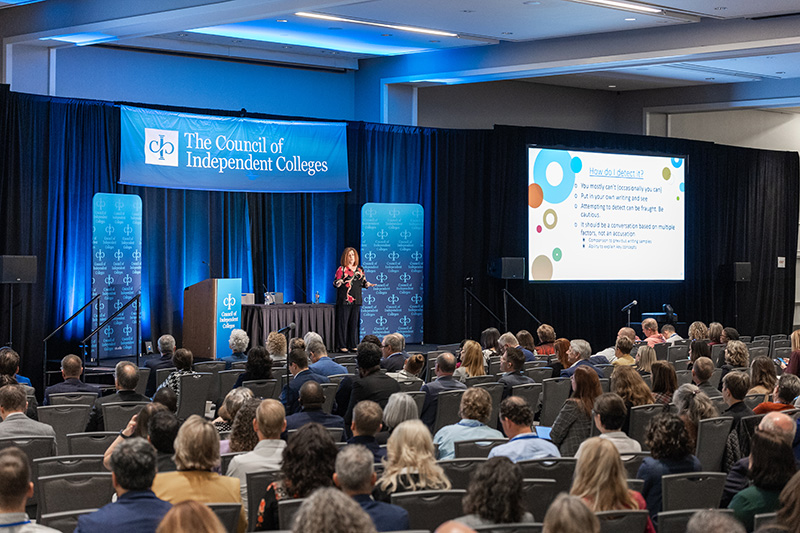
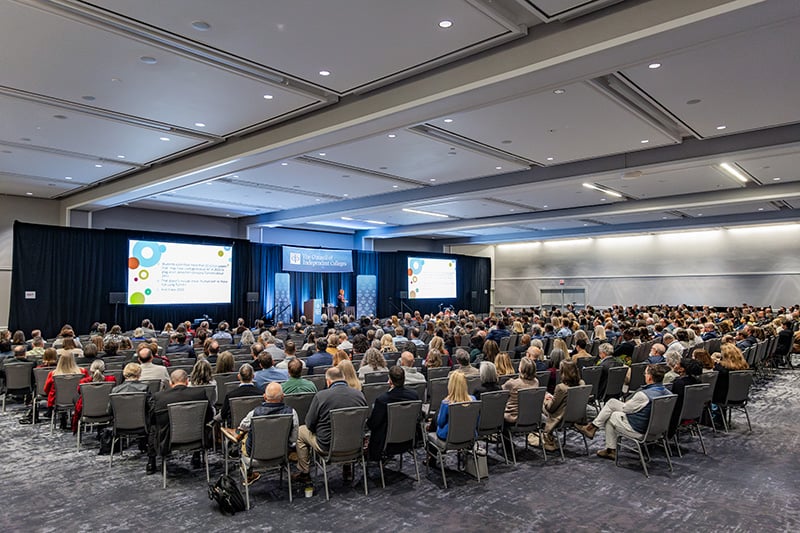
The closing plenary session was called “Telling Our Stories: The Impact of Independent Colleges/Universities,” and featured a panel discussion. Kerry D. Fulcher, president, Point Loma Nazarene University (CA); Catharine E. O’Connell, provost and dean of the college, Illinois College; and Tynisha D. Willingham, provost and vice president of academic affairs, Eastern Mennonite University (VA), shared their thoughts about ways to address the decline in public confidence in the sector and reconsider the ways we tell stories. Christon G. Arthur, president, La Sierra University (CA), moderated the discussion.
Panelists shared the transformative work that occurs on their campus, the benefits of this work to students and the broader community—both culturally and economically—and the importance of telling those stories to humanize our institutions. They emphasized the need to create programs designed to respond to needs in the community, stating that oftentimes smaller universities contribute to specialized community needs in ways that larger universities cannot. Some created nursing, business, or teaching programs with guaranteed employment for graduates, some partnered with community colleges or employers, some offered graduate and online programs to meet more needs. No matter what the program or the story that comes from it, it is essential to teach students the basic skills required of a major and also leadership skills that are involved, to keep decisions student-centered and build a sense of student belonging, and to bring institutional identity to students in a way that is grounded in learning.
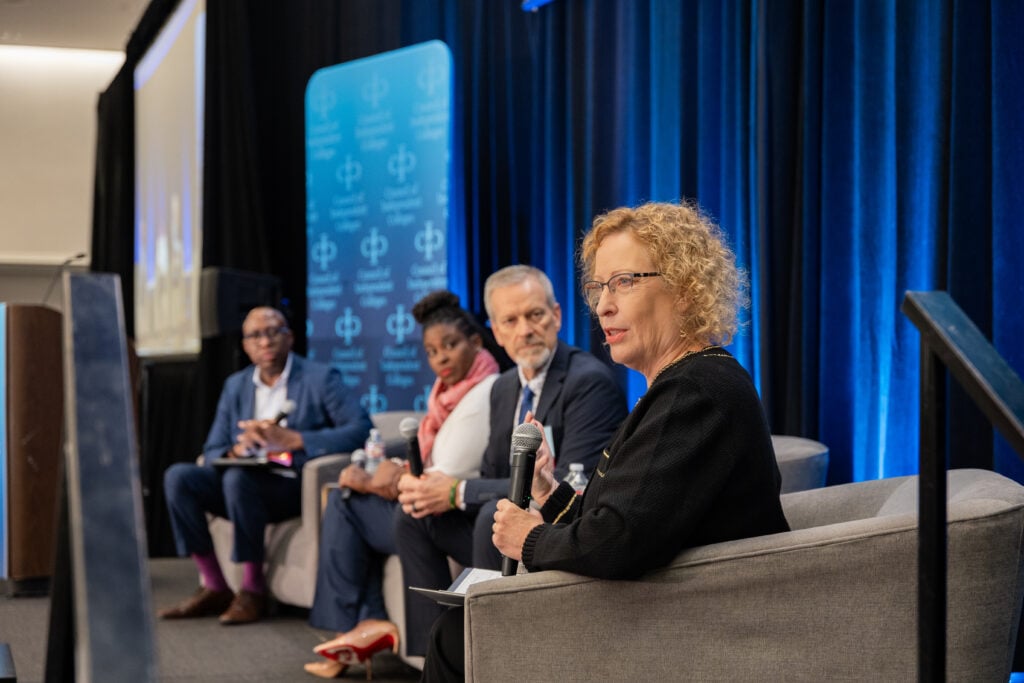
Concurrent Sessions and Interactive Seminars
The Institute for Chief Academic Officers offered many engaging concurrent sessions, including “Innovation on a Shoestring,” “Models of Shared Governance,” “Challenger Brand Institutions: Redefining Academic Affairs to Optimize Student Success,” “Harnessing the Transformative Power of Artificial Intelligence Ethically and Effectively,” and “The All-Inclusive Campus: A Digital Transformation for Student Success.”
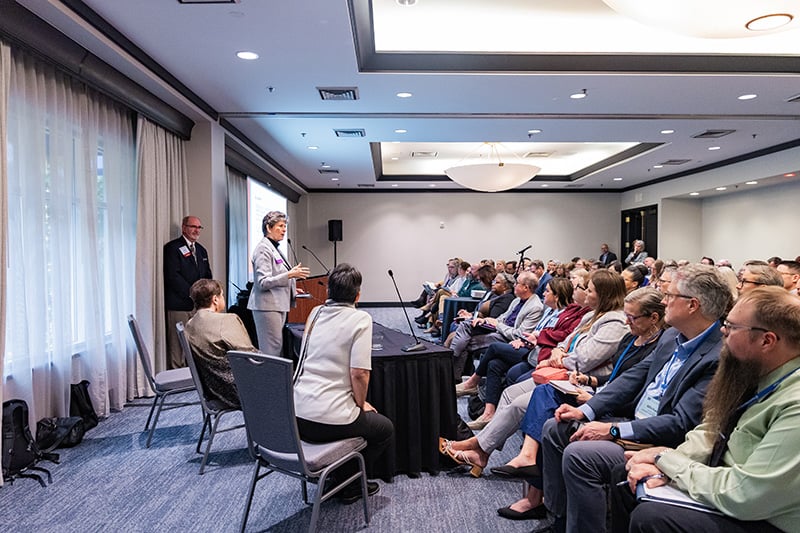
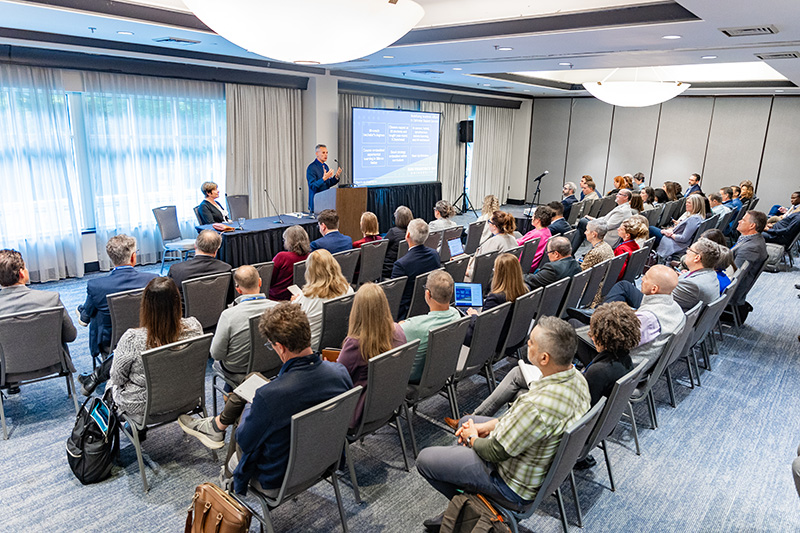
CIC offered Interactive Seminars to highlight important issues that currently impact independent higher education. Designed to be practical and hands on with clear learning outcomes, these seminar topics included “Bridging Academic Mission with Market Demands,” “Expanding Prison Education Opportunities to Your Campus: Lessons from the Field,” “Riding the AI Wave: Navigating Opportunities and Challenges in the Liberal Arts,” and “Sustaining Ourselves and Strengthening Our Organizations.”
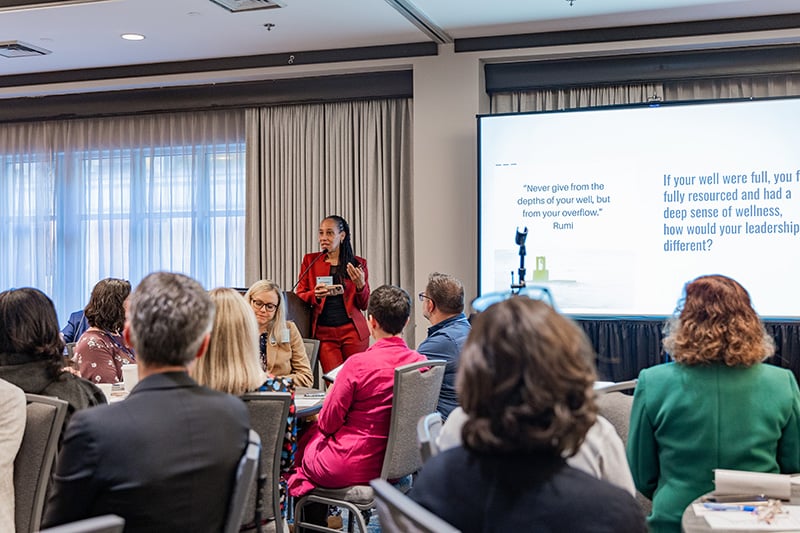
Other Featured Sessions and Highlights
Wellness is essential for administrators, too! There was a yoga wellness session offered free of charge to all Institute participants, and participants were also invited to spend some time for relaxed and informal sharing of a favorite poem (or to listen as a member of the audience).
CIC offered the Problem-Solving Open Forum, a collaborative session in which participants crowdsourced solutions to common problems and issues that arise on campuses. Topics included program evaluation, managing challenging conversations, the impact of AI on higher education, faculty handbooks, the value of higher education, and more. Participants could join as a questioner or an expert, or both.
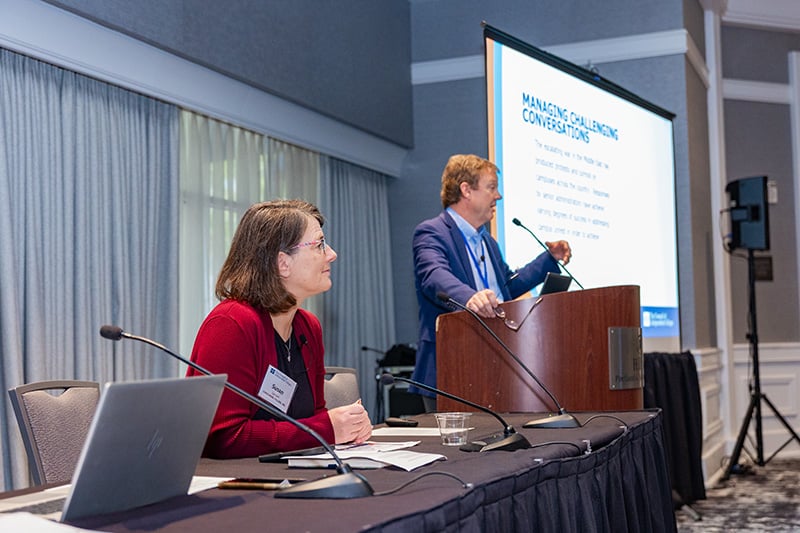
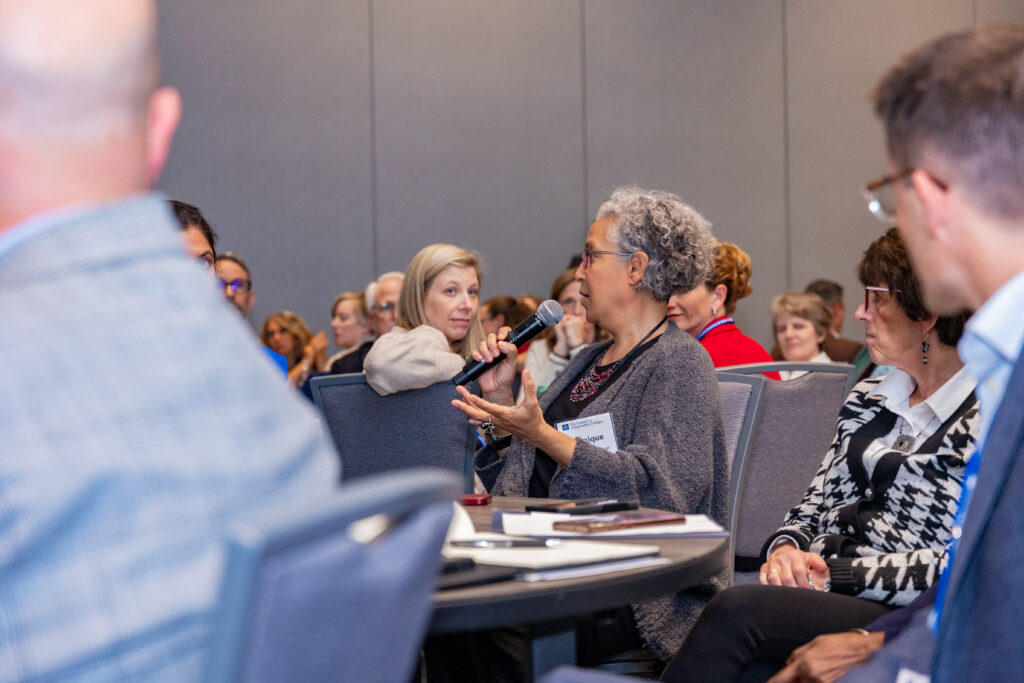
Immediately preceding the Institute, CIC offered three pre-Institute workshops: the Workshop for New Chief Academic Officers for chief academic officers who have served for fewer than two years, the Workshop for Chief Academic Officers in the Third or Fourth Year of Service, and the Workshop for Deans and Associate Provosts/Associate Vice Presidents, which was new this year and reached capacity. These workshops provided additional opportunities for coaching, networking, inspiration, and support on challenges specific to these roles.
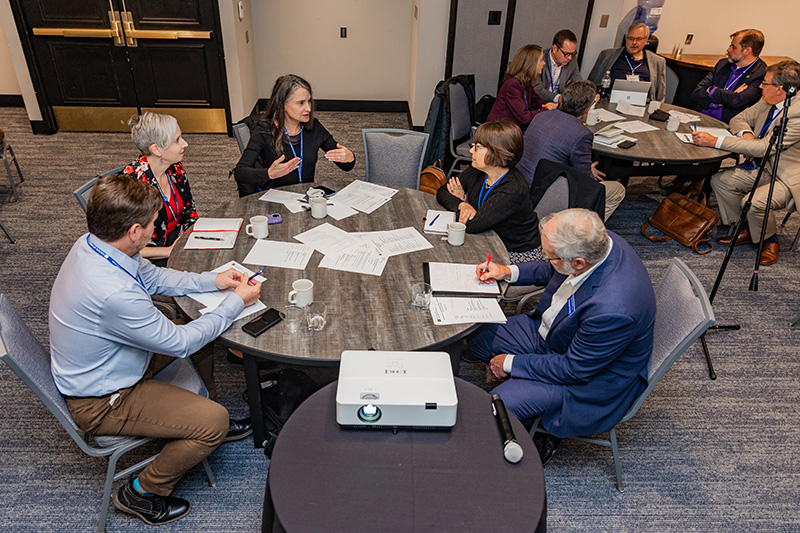
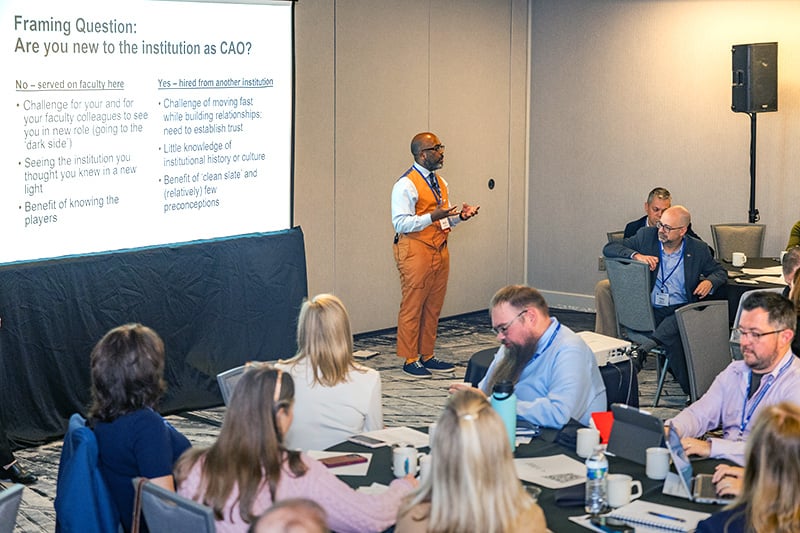
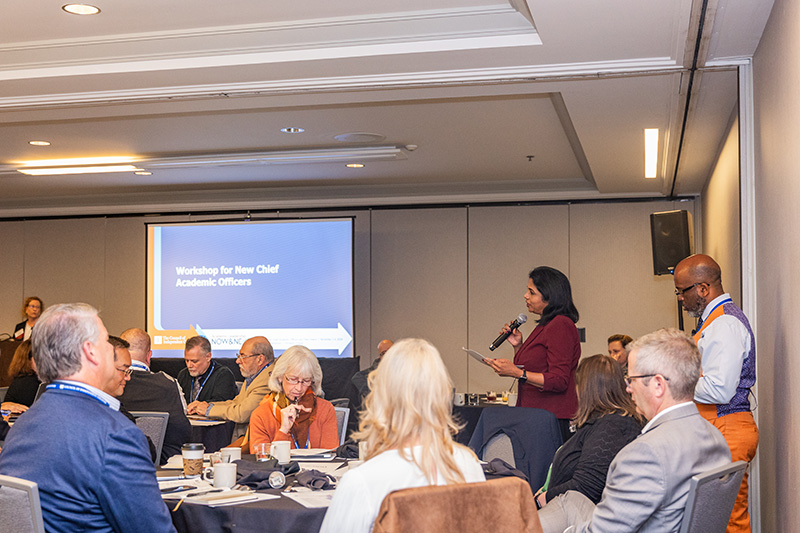
The 2024 Institute for Chief Academic Officers had 31 sponsors, including five new sponsors. Thank you to all of our sponsors for their generous support of this year’s Institute. The conference was a big success, thanks in large part to their participation.
